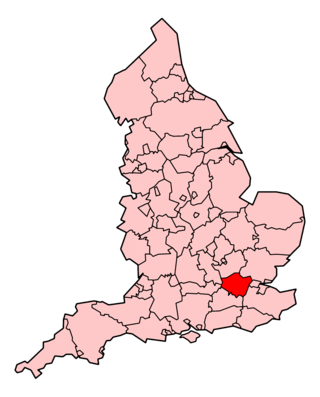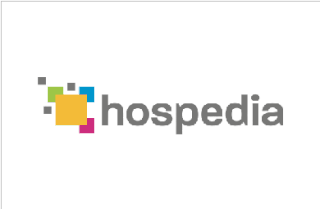Related Research Articles

An emergency department (ED), also known as an accident and emergency department (A&E), emergency room (ER), emergency ward (EW) or casualty department, is a medical treatment facility specializing in emergency medicine, the acute care of patients who present without prior appointment; either by their own means or by that of an ambulance. The emergency department is usually found in a hospital or other primary care center.
An urgent care center (UCC), also known as an urgent treatment centre (UTC) in the United Kingdom, is a type of walk-in clinic focused on the delivery of urgent ambulatory care in a dedicated medical facility outside of a traditional emergency department located within a hospital. Urgent care centers primarily treat injuries or illnesses requiring immediate care, but not serious enough to require an ED visit. In the United Kingdom, urgent treatment centres are provided by the National Health Service, which decided in 2019 that all areas of England should be served by a network of urgent treatment centres. In the United States, urgent care centers were first used in the 1970s and have since expanded to approximately 10,000 centers across the country.
Cambridge University Hospitals NHS Foundation Trust is a British public sector healthcare provider located in Cambridge, England. It was established on 4 November 1992 as Addenbrooke's National Health Service Trust, and authorised as an NHS foundation trust under its current name on 1 July 2004.

The London Ambulance Service NHS Trust (LAS) is an NHS trust responsible for operating ambulances and answering and responding to urgent and emergency medical situations within the London region of England. The service responds to 999 phone calls across the region, and 111 phone calls from certain parts, providing triage and advice to enable an appropriate level of response.

Queen Elizabeth Hospital in King's Lynn, Norfolk, England. It is located on the outskirts of King's Lynn, to the eastern edge of the town. The catchment area of the Queen Elizabeth Hospital covers the West Norfolk area, South Lincolnshire and Northern part of Fenland District, Cambridgeshire, an area of approximately 1500 km2 and 250,000 people. It is managed by the Queen Elizabeth Hospital King's Lynn NHS Foundation Trust. The Queen Elizabeth Hospital is named after Queen Elizabeth The Queen Mother, rather than Queen Elizabeth II.
Independent sector treatment centres (ISTCs) are private-sector owned treatment centres contracted within the English National Health Service to treat NHS patients free at the point of use. They are sometimes referred to as 'surgicentres' or 'specialist hospitals'. ISTCs are often co-located with NHS hospitals. They perform common elective surgery and diagnostic procedures and tests. Typically they undertake 'bulk' surgery such as hip replacements, cataract operations or MRI scans rather than more complex operations such as neurosurgery.

King George Hospital is an NHS hospital located on Barley Lane in the Goodmayes area of Ilford, in the London Borough of Redbridge. The hospital is part of Barking, Havering and Redbridge University Hospitals NHS Trust.

The East of England Ambulance Service NHS Trust (EEAST) is an NHS trust responsible for providing National Health Service (NHS) ambulance services in the counties of Bedfordshire, Cambridgeshire, Essex, Hertfordshire, Norfolk and Suffolk, in the East of England region. These consist of approximately 6.2 million people across an area of 7,500 square miles (19,000 km2).
Harvey Picker was an American businessman, educator, inventor, and philanthropist. He was the founder, along with his wife, Jean, of the Boston-based Picker Institute, whose goal was to promote patient-centered healthcare. In 2000, they founded the Picker Institute Europe.
Imperial College Healthcare NHS Trust is an NHS trust based in London, England. It is one of the largest NHS trusts in England and together with Imperial College London forms an academic health science centre.
Healthcare in England is mainly provided by the National Health Service (NHS), a public body that provides healthcare to all permanent residents in England, that is free at the point of use. The body is one of four forming the UK National Health Service as health is a devolved matter; there are differences with the provisions for healthcare elsewhere in the United Kingdom, and in England it is overseen by NHS England. Though the public system dominates healthcare provision in England, private health care and a wide variety of alternative and complementary treatments are available for those willing and able to pay.
NHS targets are performance measures used by NHS England, NHS Scotland, NHS Wales, and the Health and Social Care service in Northern Ireland. These vary by country but assess the performance of each health service against measures such as 5 hour waiting times in Accident and Emergency departments, weeks to receive an appointment and/or treatment, and performance in specific departments such as oncology.
The patient experience describes an individual's experience of illness/injury and how healthcare treats them. Increasing focus on patient experience is part of a move towards patient-centered care. It is often operationalised through metrics, a trend related to consumerism and New Managerialism.
111 is a free-to-call single non-emergency number medical helpline operating in England, Scotland and Wales. The 111 phone service has replaced the various non-geographic 0845 rate numbers and is part of each country's National Health Service: in England the service is known as NHS 111; in Scotland, NHS 24; and in Wales, NHS111 Wales.

Hospedia Ltd is a provider of bedside communication and entertainment units in UK hospitals which also sells clinical workflow solutions for NHS Trusts.

Clinical commissioning groups (CCGs) were National Health Service (NHS) organisations set up by the Health and Social Care Act 2012 to organise the delivery of NHS services in each of their local areas in England. On 1 July 2022 they were abolished, and replaced by Integrated care systems as a result of the Health and Care Act 2022.
Shrewsbury and Telford Hospital NHS Trust is the main provider of hospital services for Shropshire, Telford and Wrekin and North Powys. It runs the Royal Shrewsbury Hospital, the Princess Royal Hospital in Telford, Oswestry Maternity Unit, and Wrekin Community Clinic, Euston House, Telford, in Shropshire, England. It is one of a small number of English NHS Trusts which takes patients from over the border in Wales.
The Friends and Family Test was introduced into the English NHS in 2013. It was a single question survey which asked patients whether they would recommend the NHS service they have received to friends and family who need similar treatment or care.
Out-of-hours services are the arrangements to provide access to healthcare at times when General Practitioner surgeries are closed; in the United Kingdom this is normally between 6.30pm and 8am, at weekends, at Bank Holidays and sometimes if the practice is closed for educational sessions.
Healthcare in London, which consumes about a fifth of the NHS budget in England, is in many respects distinct from that in the rest of the United Kingdom, or England.
References
- ↑ staff (15 January 2014). "Picker Institute ceases operations after three decades". penbaypilot.com. Retrieved 22 August 2014.
- ↑ "About us". Picker Institute Europe. Retrieved 2 October 2014.
- ↑ "PICKER INSTITUTE EUROPE - NEW CLIENT". Miramar Group. Retrieved 2 October 2014.
- ↑ "Picker Institute Europe". Hospedia. Retrieved 2 October 2014.
- ↑ "National Parents Survey". BLISS. Retrieved 2 October 2014.
- ↑ "Patient Reported Experience Measure (PREM) for urgent and emergency care". RCPCH. Retrieved 2 October 2014.
- ↑ "Picker Institute publishes briefing on Friends and Family Test". NHS Confederation. 26 August 2014. Retrieved 2 October 2014.